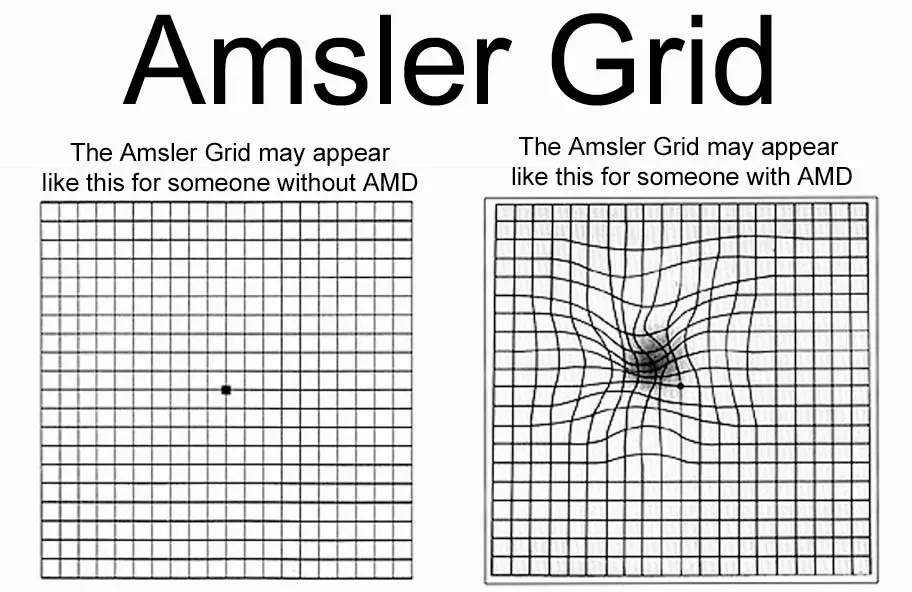WHAT IS MACULAR DEGENERATION?
Age related macular degeneration (AMD) is a deterioration that occurs in the macula, the part of the retina responsible for central vision. AMD is another cause of irreversible vision loss in the aging population. Vision loss typically affects both eyes but at different rates. Because macular degeneration affects central vision, symptoms include difficulty reading, recognizing familiar faces and seeing fine details. There are two forms of AMD: wet and dry. The dry form is more common and visual changes are typically slowly progressive and less severe. The wet form occurs less frequently but with a more sudden onset and more severe visual loss.
WHAT ARE THE RISK FACTORS FOR AMD?
While we don’t know the exact cause of macular degeneration, we can identify several risk factors for developing the disease such as advanced age, smoking, fair pigment (blonde hair/blue eyes) and genetic predisposition. While many of these are not within our control, it has been found that diet and nutrition may play an important role in AMD.
HOW DO I KNOW IF I HAVE MACULAR DEGENERATION?
Some people are diagnosed with AMD after a noticeable decline in vision. Others are diagnosed with early signs of macular degeneration during a routine eye exam. Only a comprehensive dilated eye exam by a medical doctor can detect the early signs of AMD.
CAN VITAMINS HELP PREVENT AMD?
Some patients with AMD may benefit from an over-the-counter formulation that may slow the progression of the disease, but it depends on the type and stage of the disease you have. High levels of specific vitamins and minerals may significantly reduce the progression of AMD and severe vision loss. These supplements may change the way you digest food and may also affect the way your body metabolizes other medications. Therefore, it is always best to talk with your doctor before starting any supplements.
IS THERE A CURE FOR AMD?
While there is no cure for the vision loss associated with AMD there are several new and exciting treatments available to help halt disease progression in selected patients. It is important to see your ophthalmologist to determine if you may be at risk for AMD and to educate yourself on how to detect signs of progression so that treatment can be initiated early on if needed.
WHAT CAN I DO TO STOP VISION LOSS FROM MY AMD?
Early detection of AMD with regular eye exams can help detect any change that may warrant treatment. You can minimize your risk of AMD by not smoking, keeping your blood pressure under control and eating plenty of dark leafy green vegetables and orange fruits and vegetables. Regular home monitoring with an Amsler grid is encouraged.
Download a copy of a real sized Amsler grid from the below link.

